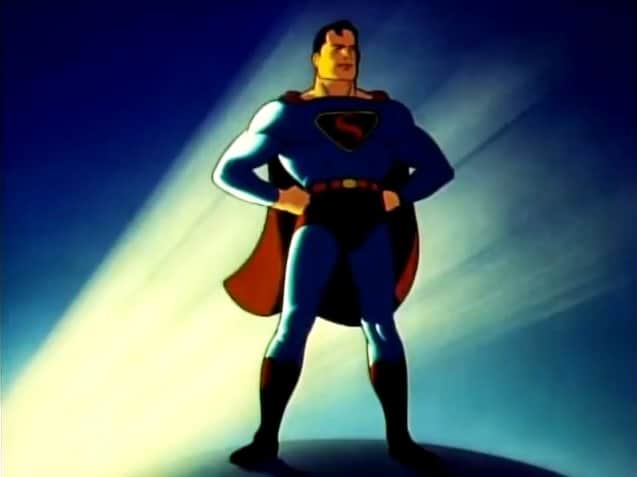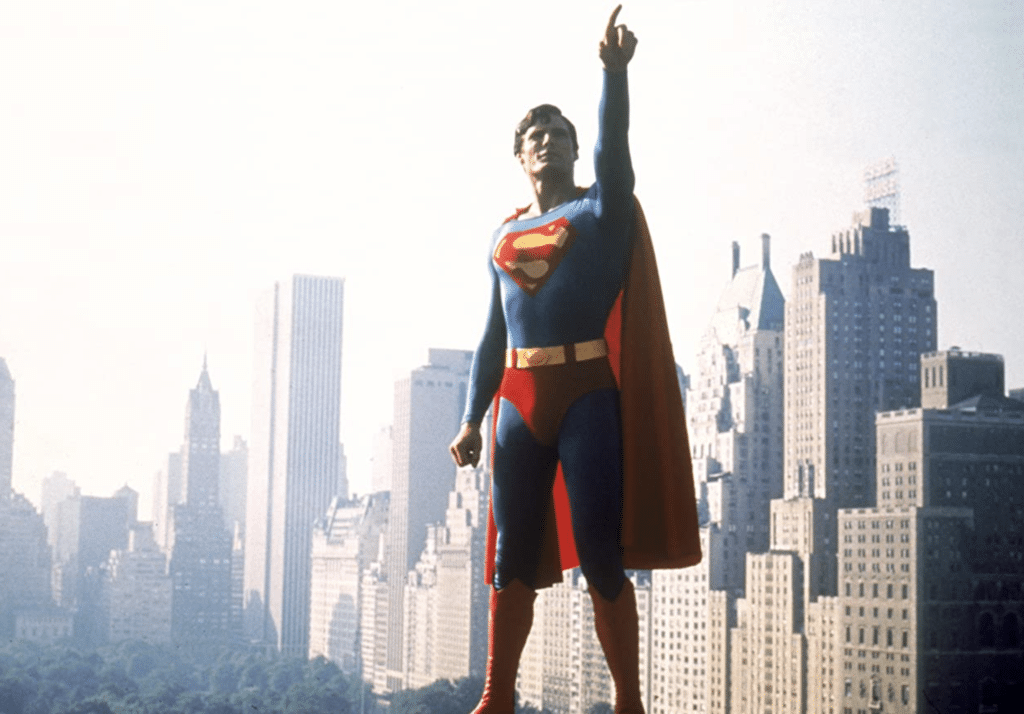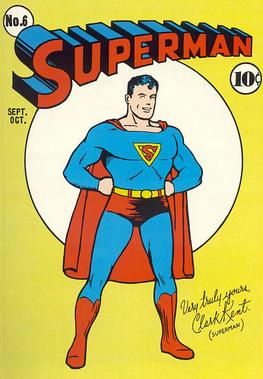
Editor’s Note: In an exciting development since this article was originally published, Jewish actor David Corenswet will play the role of Clark Kent in the upcoming film “Superman: Legacy.” This marks the first time a Jewish actor has been cast in this iconic role, further underlining the points discussed in this piece. Read on for more context about Superman’s Jewish roots.
Superman is possibly the most famous man in the world. He is the first comic book superhero, a cultural icon and an archetype for those that came after him.
Nowadays, anyone who knows a thing or two about comics is likely familiar with Superman’s Jewish roots. The character was created by Jewish immigrants from Lithuania and the Netherlands and was written as a refugee with the Hebrew-inspired name ‘Kal-El’ who escaped a dying world and fought Nazis during World War II.
Superman’s Jewish roots are possibly DC’s worst kept secret.
But over a decade ago, when Roy Schwartz started looking into the idea, it wasn’t as mainstream. Schwartz is the author of “Is Superman Circumcised: The Complete Jewish History of the World’s Greatest Hero” a 400-page study of Superman’s Jewish influences.

His book is written on the premise that Superman’s origin story is based on Moses, his strength on Samson, his mission on the golem and his “nebbish secret identity” on his Jewish authors.
So, let’s say Superman is in fact a member of the tribe. Why does it even matter? What’s the value in pointing it out?
Unpacked spoke with Schwartz to understand the real significance of the character’s background. For starters, Superman’s Jewishness isn’t some ploy to gain bragging rights or a way to ‘claim’ the character, he said.
Jewish immigrants paved the way
The comic book industry was dominated by Jewish immigrants and the children of immigrants. These creators brought their experiences and values to the stories they told. From the way their religion influenced the morals and ideals in the stories, to the backgrounds and personalities of the heroes themselves.
“Superman was a personal avatar for Jewish creators Jerry Siegel and Joe Shuster,” explained Schwartz.

“It was their reaction to the rise of Nazis in Europe and to antisemitism domestically,” he noted. “In many ways, Superman’s famous ‘S’ shield was a simple, powerful symbol used as a counter argument to the swastika.”
Superman’s origin story is reflective of the Jewish immigrant experience, said Schwartz.
“It’s a story about an immigrant born with the Hebraic name ‘Kal El’ who comes from the old country, changes his name to the uber waspy Clark Kent and hides his cape like a tallit in his pants,” he said.
“He decides at any given moment which side of himself — not just personal but also ethnic and racial — to share with the world. He can decide whether he shows it or not. That’s the Jewish immigrants experience in a nutshell”
Exploring Superman’s background serves as real insight into the mentality of his Jewish immigrant creators. The duality narrative mirrors the tensions that existed for Jewish immigrants forming new identities in America.
“Superman is an all American icon, but he’s a Jewish American icon, and he also reminds us that being an immigrant is all American,” said Schwartz.
Understanding context adds richness
Schwartz believes comics should be treated as real artifacts that contribute to the tapestry of American (and Jewish) history.
“Superman is the most popular superhero and the one most associated as an American icon, so when I argue that Superman is a Jewish character,” Schwartz explained. “It’s not an argument of ownership or some sort of bragging rights. It’s to note contribution.”

Fundamentally, understanding Superman’s Jewishness is meant to enrich the character, not to add labels or make ‘claims.’ If it bothers some people, he’s okay with that.
“Some people have taken offense and in a very understandable way, people feel ownership over this guy. I don’t take offense to their offense,” he told me with a smile. “At the end of the day, this is not important in any way to enjoy his adventures, but it enriches the background and enriches the social historical context.”
Think of it like music, he suggested.
“You don’t need to care about or know much about the Black American experience in early 20th century America to enjoy jazz. But if you really love jazz, understanding the context in which it came to be will enrich your experience and appreciation of it.”
“That’s really what this book is about. It’s to really look at the tapestry,” he said.
Comics should be regarded as documents with historical and cultural significance and taken just as seriously as other written works, he added.
“In many cases when you really look at these comics you discover significantly more intelligence and weight than you would think, even though they were aimed at children and borderline illiterate immigrants,” he said.
Schwartz can attest to the wisdom within comics, he’s spent years sifting through them. As part of his book research, he read every superman comic written since 1938, watched all the shows, movies and listened to all the radio series, he told me.
“The reason why Superman being Jewish is important is that it really puts comic books in their rightful place, which is on the same shelf as Philip Roth and Bernard Malamud, and Primo Levi… This is Jewish American literature.”
Representation isn’t everything, but it’s important

Ironically, despite the Jewish creators behind comics, there’s still “a bit of whitewashing of Jewish characters in superhero movies and TV shows,” said Schwartz.
“Imagine jazz only played by white people,” he used as an example.
“Lately, either the superhero character is not Jewish or the Jewishness has been very tokenizing. We don’t need a superhero running around saying: “Oy vey and ‘I’m schvitzing’ or rushing to make Seder,” he said. “But acknowledging that they’re Jewish can be important, particularly if it’s an important element of their character.”
He used the Batwoman television series as an example of proper Jewish representation.
“She references a bat mitzvah, visits her grandparents grave, you see a Star of David, she talks about values in one of the episodes, but that’s it. You never feel that it’s tokenism,” which isn’t always the case in popular media, Schwartz added. “Metaphor should never step in front of the story.”
Setting the stage for marginalized voices
“Jewish immigrants and their children really built the stage for other people of marginalized voices,” said Schwartz.
Comics were ahead of their time when it came to showcasing minorities and marginalized communities, and for that we have Jewish creators to thank. That’s why it’s important to recognize the Jewish culture that shaped the beloved genre, its stories and characters.
“Jewish creators really created the pundit, they created the stage to say their piece. And that microphone is now in more people’s hands,” he said.
“Now you have all different people from all walks of life contributing their unique flavor, and that stage, that microphone, was put there by the early Jews for the same exact purpose… And that’s something that does fill me with no small amount of pride.”
Bottom Line

“Superman owes his origins to Jewish culture,” concluded Schwartz. “Not exclusively, but in many ways significantly.”
Without Jews, Superman wouldn’t be Superman.
“I tried to be very responsible in my book, distinguishing between what is factually known and supported, what is obvious, what is likely, what is possible, what is a stretch but still worth including, and what is just being playful,” said Schwartz.
Though Judaism and Jewish culture does not define the character, it still matters.
“It’s not that serious at the end of the day,” Schwartz said. “But it is adding a wonderful layer to a wonderful mythology that is part of Americana. And hopefully, in some way, I added a layer of thought to that too.”
He hopes his book will encourage Jews and non-Jews alike to embrace Superman’s Jewish history.
“I always connected to him as somewhat of a personal blueprint of morality and behavior, little realizing how much of my own Jewish background this drew upon,” Schwartz said.
“The metaphor at the core of Superman is that we all have this secret super self that is super capable and confident – and that’s a fantasy anybody can relate to.”
Originally Published Mar 18, 2022 11:54AM EDT
